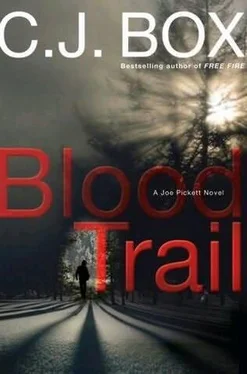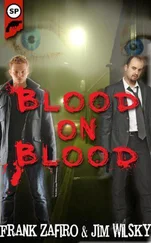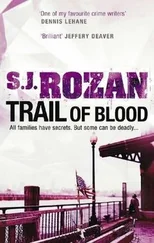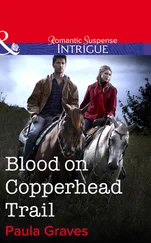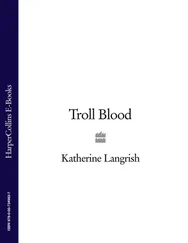“When that’s all done and you’re covered with blood and your hands stink of guts, you cut the head off the innocent animal and take it to a taxidermist. Then you proudly put it up on the wall as your trophy, as proof of what a big man you are.”
He turned his eyes directly on Sheridan. “Or in your case, what a big girl you are. So tell me, how did it make you feel?”
“You’re asking me?” Sheridan said. She noticed that the woman was looking at her as well, with a surprising nod of sympathy. In fact, the woman turned from Sheridan and glared at her husband.
“I’m asking you,” Moore said. “Did you like it? Did you like taking the life of an innocent animal? Did it please you in some way?”
Sheridan’s face was burning, and her throat ached.
“Klamath,” the woman whispered, “leave her alone.”
“Did you like the warm blood on your hands?” he goaded.
“I’ve never killed anything,” Sheridan said.
Moore was perplexed. “Then why did you raise your hand?”
“I just wanted to show I oppose you,” she said, her voice firm. “I’m an apprentice falconer. I’ve watched falcons hunt. They don’t just kill the sick and weak, so I know you’re lying. Plus, I see a big difference between hunting animals and killing a man. And I think you’re an asshole and you should stop trying to intimidate us.”
“Sheridan!” Mrs. Whaling gasped.
Sheridan thought she detected a slight smile in the woman’s eyes.
The bell rang, saving the day.
Jason Kiner whooped. Jarrod Haynes said, “This is why I love that girl.”
Klamath Moore stepped back to let the classroom empty, but Sheridan could feel his eyes burning through her. She kept her head down and clutched her books to her chest. She could hear Mrs. Whaling apologizing to Klamath Moore’s back about Sheridan’s language.
As she passed the woman, Sheridan felt a hand on her arm. She looked over to see the woman’s large dark eyes on her. Then the woman reached up and stroked Sheridan’s cheek with the back of her fingers, the same way she’d stroked her sleeping baby.
Sheridan didn’t jerk back, but was shocked by the intimacy of the gesture.
“You’re the daughter of the game warden, aren’t you?”
Sheridan nodded her head.
“You’re terribly misguided, but I hope your father knows what a brave daughter he has,” she said, and looked at Sheridan with a sudden sadness that, for some reason, made Sheridan want to cry for the second time that morning.
JOE SAT ALONE in the middle of a row of red molded plastic chairs in the hallway of the Saddlestring Hospital near the secure doorway to ICU. On the other side of the doors, surgeons worked to save Robey Hersig’s life. Joe rubbed at the stubble on his chin and covered his eyes with his hand and tried to get a few minutes of sleep. When he drifted off, though, violent recollections of the night before came rushing back as if his mind had just been waiting for the opportunity to try to expel them from his memory by force. Like the thought of Chris Urman and him carrying Buck Lothar’s dead body through the dark forest, while Urman moaned with shame and guilt. Then Lothar’s body slipping at times through their hands to crumple into a pile on the forest floor until they fashioned a travois of two stout lodgepoles and secured the body so they could drag and carry it through the brush. Or Joe’s growing comprehension as they struggled through the black, unforgiving timber that he and Lothar had been tracking not the killer but Urman the entire night while the killer slipped around them and returned to the original crime scene. Remembering his guilt for not immediately identifying himself when Lothar stepped out into the meadow cradling his automatic weapon, and wondering if his choice to remain silent was tactical-as he thought at the time-or cowardly resulting in Lothar’s death. Thinking of Robey’s lack of response on the radio and failure to respond to Joe’s periodic three-shot signaling, the first indication that something tragic had happened to his friend. Then finding Wally Conway’s dead body and Robey bleeding out next to his slumping pickup at the same time Phil Kiner and Deputy Reed arrived twenty minutes too late to provide backup. Picturing the garish image of Wally Conway’s face in the beam of a flashlight, his mouth open, the bright red poker chip next to his extended purple tongue. And the shocking realization that of the four of them who’d been on the mountain just two hours before, he was the only one still alive and unhurt, and that everything they’d done was misguided and stupid and epically wrong; that Robey, his friend and colleague and fishing partner since he’d been in Saddlestring and one of the most honest and good-hearted men Joe had ever known, in all likelihood wouldn’t survive the morning.
“YOU SHOULD get yourself cleaned up, Joe.” County coroner Will Speer stood before Joe and looked down through a pair of wire-rimmed glasses with pained sympathy in his eyes. Speer had a light brown thatch of hair and a graying mustache, and wore an open white lab coat.
Joe sat up, blinking, momentarily confused. He hadn’t heard Speer walk down the hall and didn’t know how long he’d been half-sleeping, suffering through the nightmares. Joe could smell himself: dried sweat and mud, with flowery bloodstains on his Wranglers and the sleeves of his red uniform shirt, half-moons of black blood under his fingernails that wouldn’t wash out. “Maybe so,” Joe said, nodding toward the ICU entrance, “but I think I’ll wait until I hear about Robey.”
Speer nodded. That he didn’t volunteer words of encouragement was not lost on either of them.
“Does Nancy know?” Speer asked.
“She was in Casper at a meeting,” Joe said. “She’s on her way here.”
“I bet that wasn’t an easy conversation.”
Joe shook his head. “Nope.”
“Let’s hope things calm down out there,” Speer said, gesturing vaguely with his chin in the direction of the mountains. “I only have three drawers down in the morgue and they’re all full. I don’t think that’s ever happened before.”
It took Joe a moment to figure out what Speer meant. “Frank Urman, Lothar, and Wally Conway,” Joe said. Meaning if Robey didn’t pull through, Speer wouldn’t know where to put his body.
“At least we were able to reunite Mr. Urman’s head with his body,” Speer said with bitter humor.
Joe winced. He’d forgotten about the hysterical cell phone call he’d received from Randy Pope as he, Kiner, and Reed drove down the mountain with all the victims. At the time, Joe cradled Robey in his arms, hoping the makeshift compresses they’d fashioned would stanch the flow of blood from the entrance and exit wounds in Robey’s chest and back. Pope had screamed about finding the head mounted in his room, saying, “Now this is personal !” like the tagline to an action movie. Joe had said, “I’m busy right now,” and closed his phone.
It was clear now to Joe what the killer had been doing between the time he shot Frank Urman and when he returned to the crime scene-mounting Urman’s head on a plaque in Pope’s hotel room. The savagery of the act was incomprehensible, and Joe did his best to shove it aside for later when he could better process the information.
“I suppose you heard,” Speer said, “the governor closed all hunting and access to state lands and he’s asking the Feds to do the same.”
Joe hadn’t heard, but he wasn’t surprised. Pope and the governor’s worst-case scenario had materialized. Joe was numb and completely unmoved by the news, although he knew what kind of uproar was likely to erupt statewide. All he cared about now was what was happening on the other side of the ICU doors. He had several messages on his cell phone from the governor, but hadn’t the will nor the energy to return them. He had four from Randy Pope. They’d been left while he was giving his statement to Deputy Reed earlier. Sheriff McLanahan had stood off to the side, a disdainful look on his face. Disdainful but triumphant, a look that said, You froze me out of the investigation, and just look what happened…
Читать дальше
